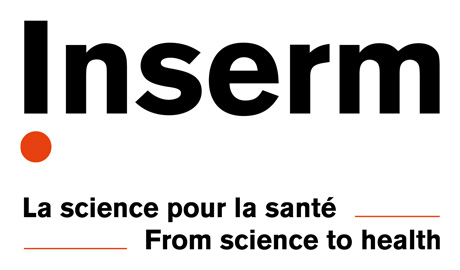





Type of contract
Location Bordeaux,
Statut Available
Key Words
Details of the offer
Type of job
Type of contract
Application deadline
Employment start date
Contact
Director of the education unit - contact details: Frédéric Gévaudant / frederic.gevaudant@u-bordeaux.fr
Director(s) of Laboratory(ies) - contacts details: Jérôme Baufreton / jerome.baufreton@u-bordeaux.fr
KEY WORDS | molecular neurobiology, cellular neurobiology, neurophysiology |
CITY | Bordeaux |
COUNTRY | France |
DETAILS OF THE OFFER | Working place: Bordeaux Neurocampus Missions: The successful candidate will join one of the Bordeaux Neurocampus labelled teams with a project relating to the " Cell biology and development of nervous system cells and synapses" research axis. His/her activity will also be part of the GPR BRAIN_2030 projects, precisely "NanoCoding", carried out by the department. More specifically, he/she will work in the field of molecular and cellular neurosciences and will have skills in ‘rupturing’ technologies enabling to visualize and manipulate biomolecules in dissociated cultures (e.g. neurons, glial cells) and more integrated systems (e.g. brain slices, organoids). The goal of the project is to unravel how nano- and micro- scale events occurring in cellular subcompartments (e.g. pre-synapse, dendritic spine, dendritic arbor, the axon and its initial segment) are integrated to control neuronal functions such as development, synaptic transmission and functional and structural plasticity, specific patterns of firing. This project will use existing cellular models in Neurocampus laboratories or new models allowing the implementation of systematic genetic and molecular approaches (e.g. Drosophila, nematodes, induced stem cells). The models could range from dissociated cells, to more complex multicellular systems such as tissue slices, organoids. The project will rely on advanced imaging methods to visualize and manipulate protein organization, dynamics and function at the molecular level, in particular super-resolution microscopy, fluorescent sensors, optogenetic/chemogenetic approaches. The project could target fundamental functions of cells from the nervous system (e.g. neurons, astrocytes...) during diverse processes such as development, sensory information processing, synaptic transmission, memory, but focusing on the molecular and cellular aspects. The candidate will be assigned to a Bordeaux Neurocampus team to develop a project in the field of molecular basis of cell function (neurons, glia, etc...). His/her project will be part of the GPR BRAIN_2030 NANOCODING and MEMORY, aiming to bring to the Bordeaux Neurocampus teams advanced skills to elucidate the molecular basis of neuronal function (nanodomains, synapses, axonal compartments, etc...). Qualifications:
Expected scientific impact: The arrival of a research professor in Molecular Neuroscience will allow the Bordeaux Neurocampus to reinforce a research axis on which the department has an international recognition. On this basis, the future recruit will have to take responsibilities within his or her host laboratory, by coordinating his or her own projects and by considering eventually taking the responsibility of a research team.
Training courses concerned:
Pedagogical objectives and need for supervision: The recruited teacher will be part of the neuroscience pedagogical team to participate in the Bachelor and Master courses. He/she should have a solid knowledge in the fields of molecular and cellular neurosciences in order to ensure these teachings in the neurosciences master and the Life Science license. On the other hand, he/she will participate in the reflection on the new master's program and will be led to propose courses linking neurosciences in their cellular and molecular aspects (analysis of signaling pathways in the various cellular processes such as neuritic growth, synapse formation, cellular homeostasis...). On a larger scale, the pedagogical team wishes to reinforce a longitudinal teaching of molecular and cellular neuroscience linking a total of six teaching units, from the Bachelor's degree (L3) to the Master's degree (M1 and M2 in 3 courses), if possible in connection with the training in optical techniques for biology (EUR Light). Experience in the use of innovative pedagogical techniques and internationalization (many courses in the neuroscience master's program are in English) will be appreciated. |
TYPE OF JOB | Post Doc & researchers |